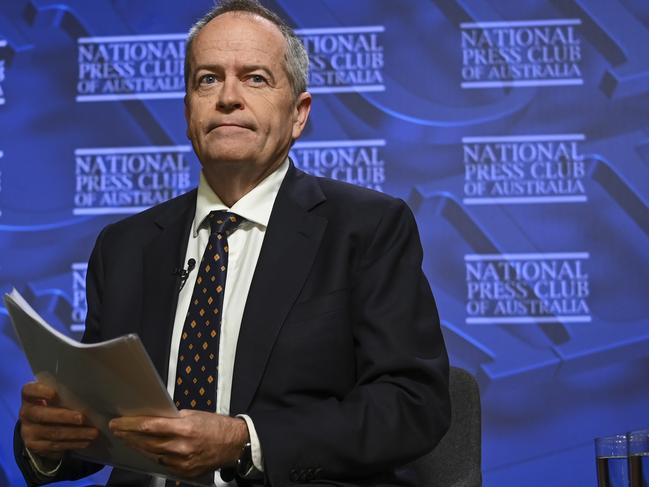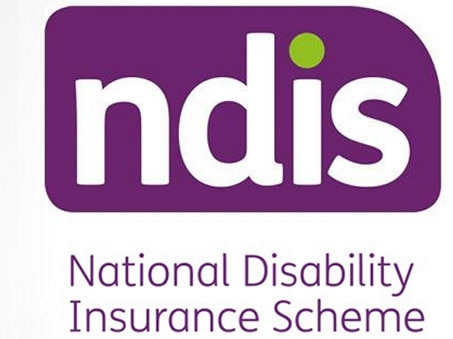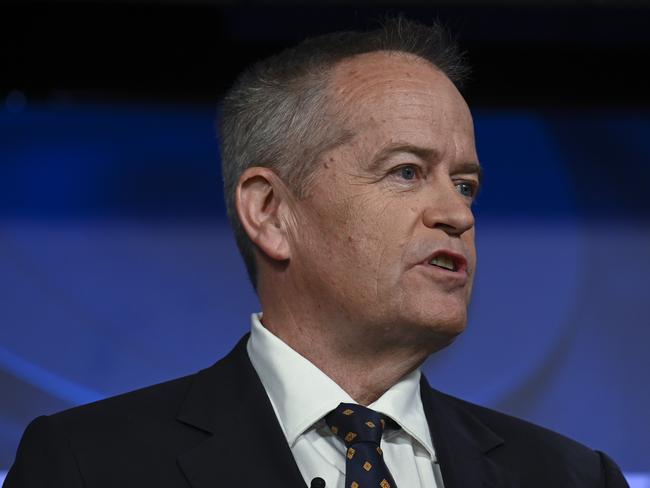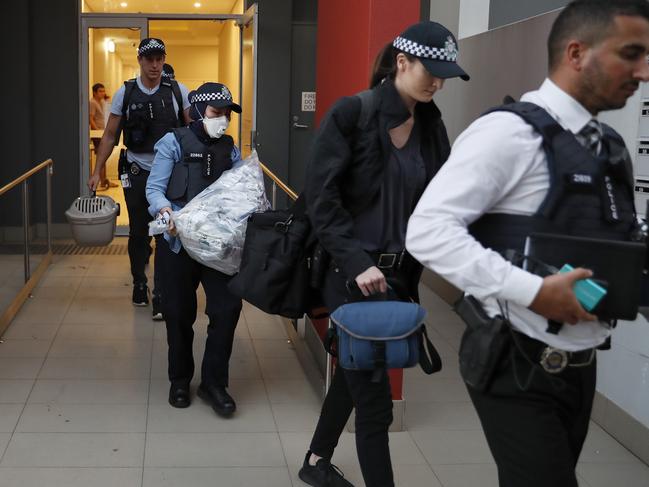Bill Shorten’s six point plan to ‘reboot’ NDIS: Winners and losers
The National Disability Insurance Scheme needs a total “reboot”, according to Minister Bill Shorten. We analyse his six-point plan.
National
Don't miss out on the headlines from National. Followed categories will be added to My News.
NDIS Minister Bill Shorten’s six-point plan to “reboot” the scheme will tackle many of the concerns participants have voiced for years, including the often traumatising and anxious experience of securing funding.
In his address to the National Press Club in Canberra Mr Shorten made reassurances that he would not be removing “huge slabs” of people from the scheme but, in fact, he hoped to make it easier for those in need to qualify.
However, one large group of people who will not be happy with Mr Shorten’s speech is those who have become disabled after the age of 65. They will continue to be banned.
He confirmed their care would remain under Aged Care, which has far fewer benefits for those with a disability than the NDIS.
Mr Shorten also said he had a plan to deal with the “unethical actors and criminal syndicates” who have taken advantage of poor administration and were rorting the system of millions of dollars.

But, of course, all this costs money and it looks like Mr Shorten will be looking to the states and territories to make a bigger contribution.
So, let’s breakdown the six reforms.
Increasing the NDIS workforce and specialisation
Mr Shorten talked about increasing the number of agency staff, providing better training, returning call centre functions in-house, as well as improving the culture within the agency to stop staff churn.
This is about improving the customer experience and nurturing the relationship between staff and participants.
Verdict: This is a win for people on the scheme who have complained that the process is traumatising and degrading. This reform is very much needed. Mr Shorten has listened to clients. But it will cost money.

Long term planning
Short term NDIS planning is to be replaced with long term planning.
Mr Shorten questioned why people who are blind have to prove they still can’t see over and over again. He said it was a waste of resources.
Longer planning would also give more predictability. However, it’s not a “set and forget” policy.
Verdict: This will be a massive relief for anyone with a permanent disability, who say applying for funding every six to 12 months is frustrating and stressful.
This is a win for commonsense. There are certain people who will never get better or whose condition will only worsen. So this is a no-brainer for those participants who will suffer less stress and anxiety and will be able to better plan their health strategy. Not having to go through an unnecessary process every year will also save the taxpayer.
Supports must be “reasonable and necessary”
All NDIS services and supports that are “reasonable and necessary”.
Mr Shorten said he wanted to stop providers overcharging just because it is government money, which has become a “cultural assumption in Australia”. He said he was awaiting recommendations from an independent panel on how to “maximise every dollar spent”.
Verdict: Non-compliance and price gouging is hard to identify, so it will be interesting to see what the panel come up with.
News Corp has found multiple incidences of price gouging, as well as some providers offering “shoddy’ non-evidence based services, such as psychic healing and tarot cards.
This is a controversial area, as it is subjective and there is no list with what is or isn’t “reasonable and necessary”.
To make this work there needs to be clearer guidelines on what falls under “reasonable and necessary” and better checks on what is being provided.

Improve Support Independent Living (SIL)
This program is about getting people to live independently with support, 24/7 if necessary. However, Mr Shorten said at the moment the program was providing “poor outcomes”. He said sometimes it splits couples or families, or drives people into institutionalised settings.
Verdict: Insiders say there are some good providers out there, but there are also people building cheap accommodation in the wrong areas just to make a quick buck, that doesn’t serve the best interests of the person. Those doing a good job would agree this is an area that needs cleaning up.
There was little detail on how the government planned to improve this area. But the NDIS review due in October is looking at how to get “better home and living decisions for participants”.
Misuse of NDIS funds, beyond criminal syndicates
It’s not just criminal gangs targeting the NDIS. providers offering shoddy therapies, or pressuring participants to undertake something not covered on their plan, or charging for longer sessions than provided, are all under scrutiny, according to Mr Shorten.
NDIS staff will be in place to ensure people deliver and don’t overcharge. There is also more awareness by the public with tip offs increasing month on month, with 1700 in March.
Verdict: While better trained staff may be able to pick up on some of these shoddy services, there also needs to be a better system for checking the invoices and the businesses, to make sure what they say they are claiming for is what was provided.
News Corp has discovered this is a loose area where there is a lot of noncompliance.

More community and mainstream supports
Mr Shorten called on everyone to be more inclusive of disabled people, including workplaces, transport, sports and education.
Verdict: No one can disagree with this, although Mr Shorten did not elaborate on how he hoped to improve the situation, perhaps a public awareness campaign is on the cards.





